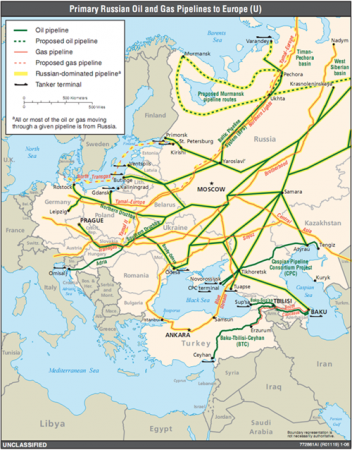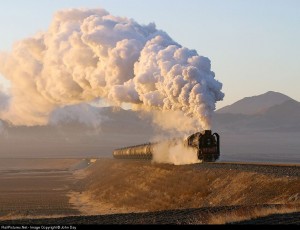One thing environmentalist advocates have hoped for is that some environmental catastrophe might be interpreted as a call to action against climate change. It’s not a bad idea, but it suffers from a problem. While global warming does increase the frequency of catastrophic events, no particular event can be specifically linked with that increase in frequency – and therefore no particular environmental disaster can easily stand as a call to action.
Up until recently, the plight of the Palestinians has suffered from a similar problem – while the increasing violence and oppression of the state of Gaza might be recognized as a fact by Palestine’s supporters, those who wish to reserve judgment on the issue could look at any particular instance of violence and interpret it as justified in its particularity by Israel’s precarious situation in the middle east. That is, until recently – the murder of ten unarmed humanitarian NGO workers on a vessel carrying goods currently being barred entry into Gaza by an illegal blockade is not easily interpretable as justified by Israel’s “threatened” status. As The Globe and Mail put it:
Israel’s claim this week that its soldiers killed nine civilians in self-defence on an aid-to-Gaza flotilla it had boarded is at best tone deaf. It strains credibility. You attack unarmed ships at sea and when people resist, shoot them and then blame them. It’s beyond Orwellian.
More significant than the Globe’s analysis, is the fact Israel is being criticized in the mainstream press at all. This novel event signals the importance of the event reported – in it, Israel’s oppression of the Palestinian people has exceeded the ability of western business interests (represented in and by The Globe and Mail) to continue to stand by and mouth approval. In this event, the value of opposing barbarism exceeds the value of maintaining the status quo, no matter how profitable the current situation.
The importance of Margaret Atwood’s change of feeling with respect to Israel’s treatment of the Palestinians can not be underestimated either. As Canadian cultural figures go, they do not come much bigger than Atwood. And in her position as Canada’s preeminent writer, her introduction of the notion of “Israel’s shadow” is not likely to fade away after this first mention – it will likely become an enduring term in the political imaginary.
“The Shadow is not the Palestinians†but “Israel’s treatment of the Palestinians.†It seems to me this is the key to what has changed and poses a new problem for Israel. The core for anyone examining the situation with a fresh eye, isn’t what “they†– Palestinians – are doing to Israelis; it’s what Israel is doing to them.
But what does this event have to do with burying coal? Precisely this: that in an era where disaster, not reason, is the event of politics, the purposeful production of disaster towards one’s own ends is the preeminent form of political change. This does mean “make a disaster – make change”, because the grounds, the conditions for the disaster must be adequately laid, and the disaster must be produced in such a way that it can not be re-adapted, re-interpreted back into the dominant narrative.
But isn’t there an obvious contradiction here – while it is feasible enough to provoke a state into killing you, isn’t it illogical, impossible, to provoke such a crisis that would relate to global warming and the need for drastic reductions in carbon emissions? I think this contradiction appears only if our notion of disaster remains needlessly narrow – politics is after all not about the disaster itself, but how it is produced, displayed, re-produced etc…. And, climate change mitigation is not only about the environment, but about humans living in the environment, and the moral demand to produce a future where humans can continue to live in their environment. The violent actors, therefore, under the optics of climate change, are emitters – but more importantly, those emitters which are not “policy takers”, but rather who have more power than governments, whose influence produces climate change denial, and who are not simply people with bad consciences, but structures which disallow people from acting on conscience at all (i.e. shareholder capitalism).
We can thus think backwards to the kind of event one would need to produce, from the evental transformation we need such an event to produce. Perhaps most essentially, we need to reconsider why we are at home with living in a society so deeply hypocritical, and why we are unwilling to change the structures that reproduce that hypocrisy. The event can not be violent – both because of the hypocrisy inherent in violent action acting against violence, and because of the trivial ease of trivializing violence. And yet the event can not be merely peaceful – because hypocrisy always wears the face of peace – it is essential that the flotilla met the IDF and not an Israeli public relations team. The event must be, above all, provocative – both in the sense that it should provoke an unjustifiable response, and in the sense that the unjustifiability of that response should be provocative of a change in attitude towards the political situation that made such a response normal. Ideally, the provocation would require the Globe and Mail to respond with a critique of our Prime Minister like the recent one:
And in this situation, who is a real “friend of Israel†– as they say. Is it Margaret Atwood, who raises questions and doubts, or Stephen Harper, who encourages Israel along the same perilous route that brought it to this point?
What events could shift the public imaginary with respect to climate change policy? The BP oil spill is perhaps an example of an immediate tragedy as part of oil extraction whose true disaster is long term. Perhaps police oppression of climate justice activists at the coming G8/G20 could be a political event to show up the hypocrisy of the current systems. The key, I think, is to allow the reception of an event in such a way that the long term catastrophe can be seen reflected in a particular happening – this may be the key to real political transformation surrounding carbon emissions and their unimaginable impact on our future.


